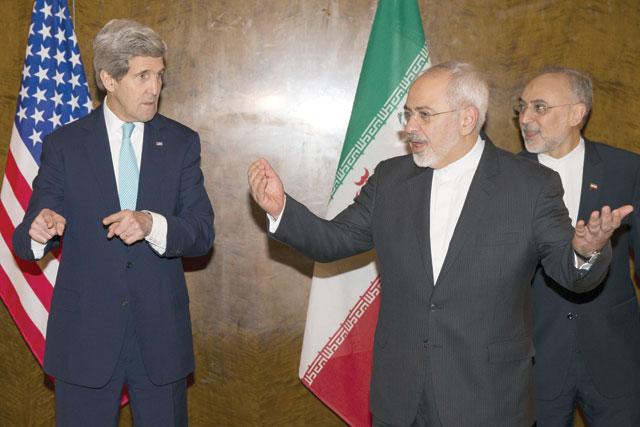You are here
Iran nuclear proposals 'not a reasonable basis' for accord — France
By AFP - Dec 08,2021 - Last updated at Dec 08,2021
PARIS — Proposals submitted by Iran at talks in Vienna last week aimed at reviving the 2015 nuclear deal fall well short of what is needed, France said on Tuesday, adding time was running out with Iran's atomic drive making worrying progress.
"The proposals presented by Iran last week do not constitute a reasonable basis that is compatible with the objective of a rapid conclusion while respecting the interests of all," the French foreign ministry said in a statement.
It expressed "disappointment" that the talks failed to move forwards, after diplomats agreed on Friday to pause the discussions for several days to allow consultations in capitals. It is not clear when they will resume.
"None of the delegations present — apart from Iran — wanted the negotiations to restart on this basis," the ministry said.
"Time is running out then because — five and a half months after Iran halted negotiations — they still have not really resumed," it added.
There was added urgency because "Iran is continuing its nuclear programme at an extremely worrying direction", it said.
The United States warned after the talks that it would not allow Iran to “slow walk” the negotiations, which seek to revive the 2015 accord that has been moribund since president Donald Trump walked out of it in 2018.
His successor Joe Biden has said he is ready to reenter the agreement so long as Iran meets key preconditions including full compliance with the deal, whose terms it has repeatedly violated by ramping up nuclear activities since Trump walked out.
Iran’s foreign ministry said on Monday it was ready to resume nuclear talks based on the draft proposals it submitted, accusing Western powers of stalling the negotiations.
Israel, which has never ruled out military action against the Iranian nuclear programme, urged world powers to halt the talks.
Western powers, Israel and pro-Washington Arabian Peninsula states fear that Iran intends to develop an atomic bomb. Tehran denies this, insisting it only seeks to produce energy for its population.
The nuclear deal promised Iran step-by-step sanctions relief in exchange for restrictions on its atomic work which would be under the strict supervision of the UN atomic agency.
Related Articles
AMMAN — Members of the under-establishment Jordanian civil coalition party said their application to found the party was rejected because th
PARIS — The United States and three European powers agreed on Friday in consultations in Paris on the need for Iran to return quickly to tal
Simply demanding Iran's capitulation is no way to get a nuclear deal with the Islamic Republic, US Secretary of State John Kerry said on Wednesday as he wrapped up three days of talks with a veiled dig at Israeli Prime Minister Benjamin Netanyahu.

















